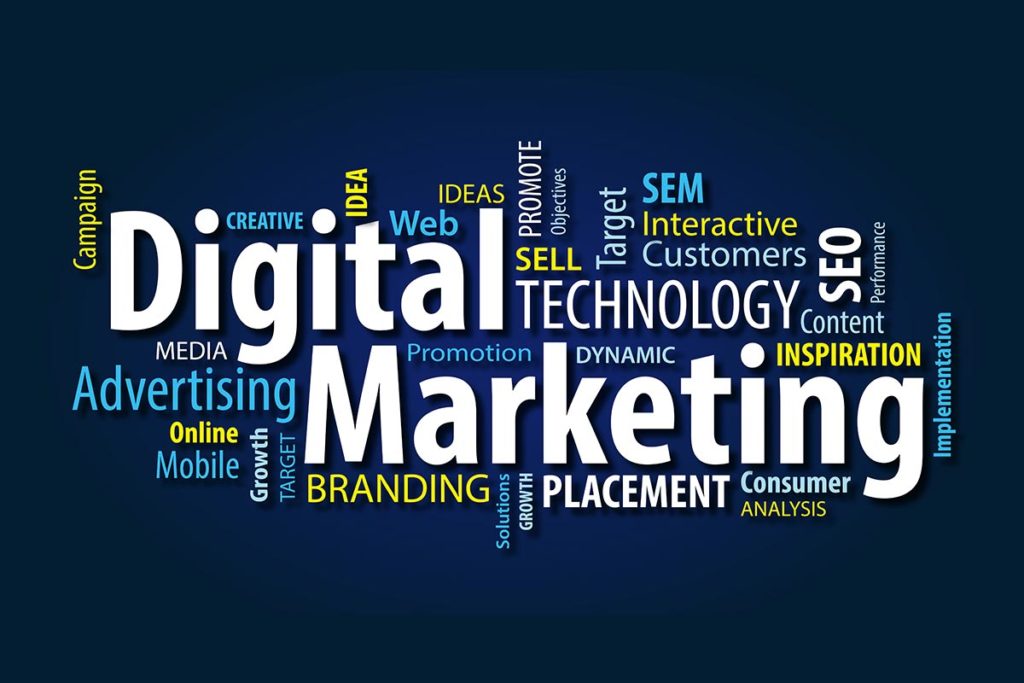Digital Marketing
Digital marketing uses data and technology to target, engage, and convert customers through multiple digital channels such as search engines, websites, social media, email, mobile apps, and display advertising. It is an ever-evolving field that requires a deep understanding of customer behavior and an ability to adapt to changes in technology and customer preferences.
Effective digital marketing strategies incorporate a mix of tactics, including search engine optimization (SEO), pay-per-click advertising (PPC), content marketing, social media marketing, email marketing, affiliate marketing, influencer marketing, mobile marketing, video marketing, and display advertising. The ultimate goal of digital marketing is to build brand awareness, drive traffic, generate leads, and ultimately, increase sales and revenue.
What is digital marketing and what are its goals?
A: Digital marketing refers to the use of digital channels, such as search engines, social media, email, and websites, to promote a product or service. Its goals include increasing brand awareness, generating leads and sales, and building customer loyalty.
Can you explain the different types of digital marketing?
A: The main types of digital marketing include: search engine optimization (SEO), pay-per-click advertising (PPC), social media marketing, content marketing, email marketing, influencer marketing, and affiliate marketing.
How does SEO work and what are its benefits?
A: SEO involves optimizing a website and its content to rank higher in search engine results pages (SERPs) for relevant keywords. This can be achieved through on-page and off-page optimization techniques. The benefits of SEO include increased organic traffic, improved website user experience, and higher brand credibility and visibility.
What is PPC advertising and how does it differ from SEO?
A: PPC advertising involves paying for ad space on search engine results pages, typically through platforms like Google Ads. Unlike SEO, which aims to rank organically, PPC advertising allows businesses to reach their target audience immediately through targeted ads.
How important is social media in digital marketing?
A: Social media is a crucial component of digital marketing as it allows businesses to engage with their target audience, build brand awareness, and drive traffic to their website. Platforms like Facebook, Instagram, and Twitter can also be used for advertising and lead generation.
What is content marketing and why is it important?
A: Content marketing involves creating and sharing valuable, relevant, and consistent content to attract and retain a target audience and ultimately drive profitable customer action. It is important because it helps establish a brand as a trusted authority in its industry, as well as generates leads and drives sales.
How can email marketing be used effectively in digital marketing?
A: Email marketing involves using email to promote a product or service and build relationships with customers. To be effective, email marketing should be targeted, personalized, and provide value to the recipient. This can be achieved through segmented email lists, A/B testing, and regularly scheduled newsletters.
How does influencer marketing work and what are its benefits?
A: Influencer marketing involves partnering with influential people in a specific niche or industry to promote a product or service. The influencer uses their personal brand and following to promote the product to their audience. The benefits of influencer marketing include increased brand exposure, credibility, and trust.
Can you explain affiliate marketing and how it works?
A: Affiliate marketing is a performance-based marketing strategy where a business rewards affiliates for each customer or sale generated from their unique referral link. Affiliates promote the business’s products or services to their own audience and earn a commission on any resulting sales.

